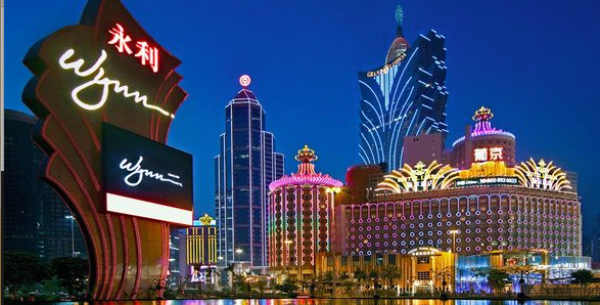Macau Reports Revenue Increase for 4th Straight Month
HONG KONG — (Reuters) - The world’s biggest casino hub of Macau posted a 14.4 percent rise in gambling revenue in November, a fourth month of growth after more than two years of decline, as new resorts helped bring in more casual gamblers to the southern Chinese territory.
More mass gamblers and visitors have made their way to Macau after multi-billion dollar casino openings by Sands China Ltd. and Wynn Macau Ltd. in the third quarter, leading to a gradual pick up in revenues. However, VIP clients - seen as high-rollers - continued to stay away amid Beijing’s campaign against graft and shows of wealth by public officials.
A specially administered region of China, Macau is the only place in the country where casino gambling is legal.
In November, the casino hub raked in a revenue of 18.8 billion patacas ($2.36 billion), government data showed on Thursday, at the top end of analyst expectations for a 10-15 percent rise. The figure was a drop from the previous month, when revenue had been boosted by a national holiday week.
Visitors and overnight tourists to Macau have increased in recent months and while analysts have mostly called a bottom to Macau’s gaming revenue, some remain cautious on the sustainability and pace of the recovery for operators Sands China, Wynn Macau, Galaxy Entertainment, MGM China , Melco Crown and SJM Holdings
Gross gaming revenue for Macau casinos is expected to be flat to up 10 percent next year, versus an estimated 3 percent to 6 percent drop this year and a sharp drop of 34 percent in 2015, said Sophie Lin, a credit analyst at S&P global ratings.
“The opening and ramping up of new casinos, better infrastructure connecting Macau with mainland China, and stabilizing regulations are the major factors that will fuel a rebound in the gaming industry,” Lin added.
Macau’s GDP grew 4 percent in the third quarter, the first positive growth recorded over the past two years, Macau’s Statistics and Census Bureau said in November.
Macau’s chief executive, Fernando Chui, has previously said the gambling hub needs to do more to boost family tourism including building a theme park, in line with the government’s efforts to rebrand Macau as a more mass-market destination.
The government will, however, continue to increase regulations on the operation of VIP rooms and promote responsible gaming, Chui has said at the time.
Macau’s VIP industry is mostly managed by middle men, casino junket operators acting on behalf of multi-billion dollar casinos. But since 2014, their business has been hit hard with Chinese President Xi Jinping implementing an anti-graft campaign.
Prior to 2014, revenue from VIP gamblers made up over 70 percent of total revenues. Now it is just under half.
















